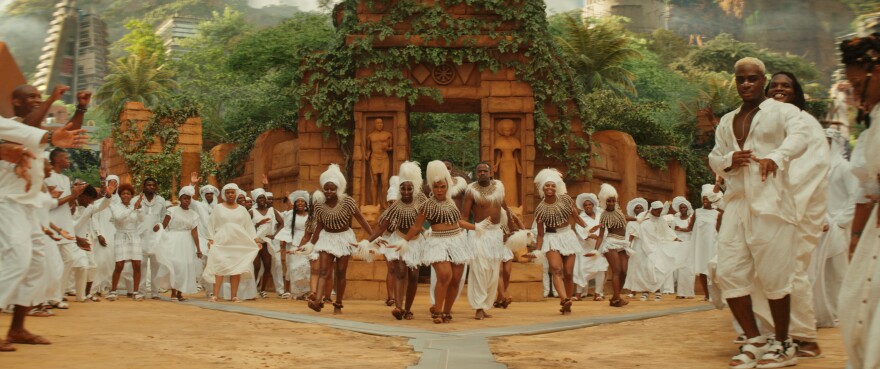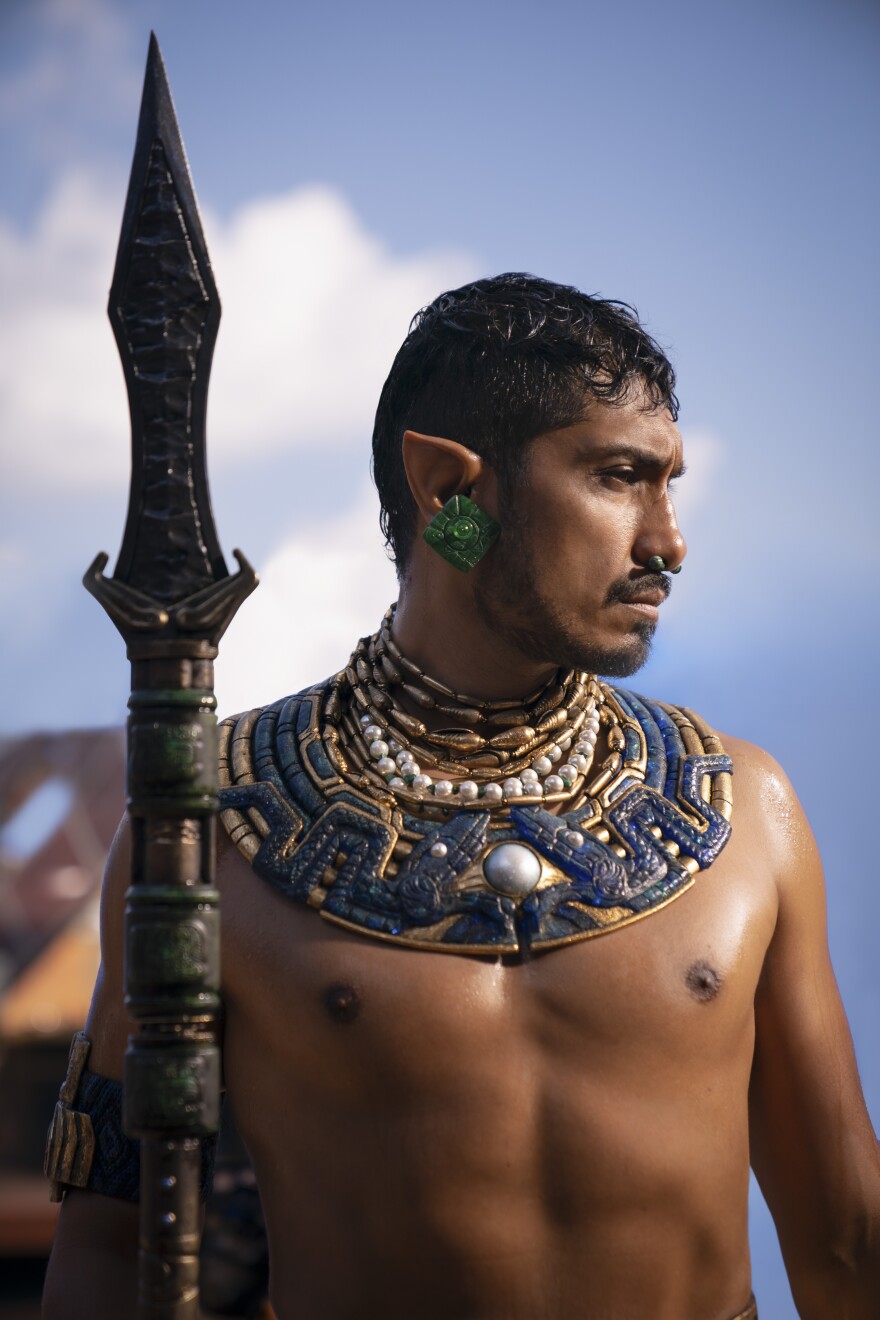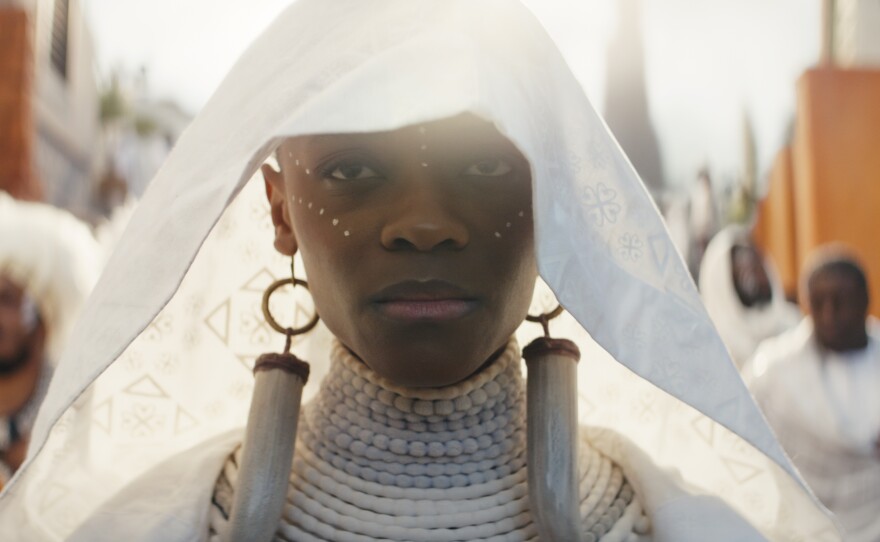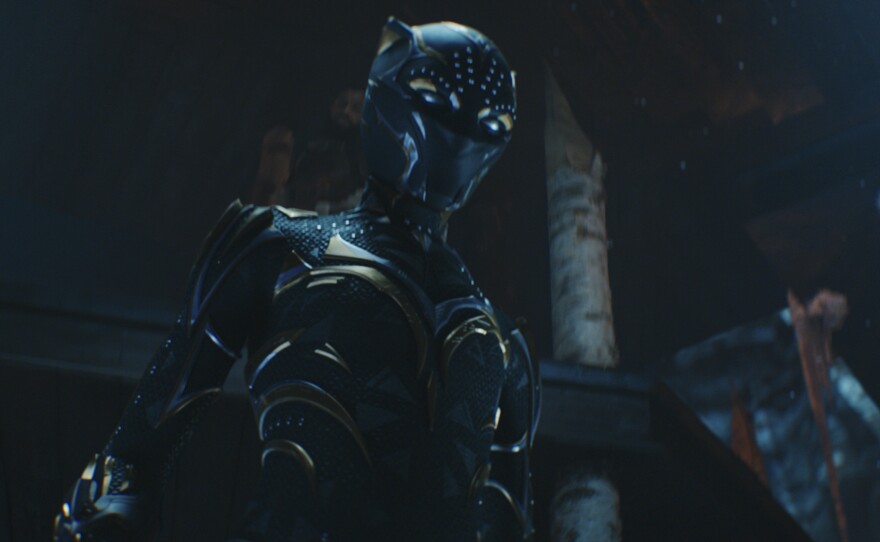The much anticipated "Black Panther: Wakanda Forever" arrives in theaters and pays loving tribute to its late star Chadwick Boseman.
The Black Panther sequel faced a real life tragedy and an enormous narrative hurdle when its star Chadwick Boseman unexpectedly died of colon cancer in 2020. He had not widely shared the diagnosis so his death took the production by surprise.
Director/writer Ryan Coogler had reportedly finished the script just weeks before the actor's death and then had to deal with his grief and loss as well as the studio's demand for a quick rewrite. There was no way to replace Boseman, who not only brought Black Panther to cinematic life but also embodied the superhero's virtues offscreen. So Coogler had to pivot.

Rewriting after Boseman's death
The result is "Black Panther: Wakanda Forever," a film that pays moving tribute to the passing of the character of King T'Challa in a manner that also acknowledges the real life loss of Boseman.
The film's ceremonial mourning of King T'Challa is gorgeously rendered in Ruth Carter's costumes and the work of production designers Hannah Beachler and Jason T. Clark. Angela Bassett steps up regally as Queen Ramonda to give the film emotional weight as Wakanda tries to assert itself in global politics while grieving at home.
The country and the film are both looking for direction, and the catalyst to spur movement comes in the shape of Namor (Mexican actor Tenoch Huerta Mejía), the king of the undersea nation of Talokan. (Yeah, Namor looks an awful lot like Marvels' version of DC's Aquaman but Namor slightly preceded him in the comics and was an anti-hero rather than superhero.)
Namor is concerned about the surface world's interest in vibranium — a powerful ore thought only to exist in Wakanda — found near his underwater kingdom. He comes to Wakanda to seek help but his requests go unanswered and that leads to conflict between the two nations. Shuri (Letitia Wright), T'Challa's younger sister and a scientist, finds herself drawn into the conflict and if not out of her grief then at least distracted from it.

The film has to jump through a lot of hoops to stir up aggression between Wakanda and Talokan (the name and cultural look are inspired by Aztec mythology rather than Atlantis as in the comics). I'm not sure why Shuri feels compelled to burn the whole world down after her brother died of what appears to be natural causes, but she needs to be angry to get the story to its massive CGI conclusion. Where two computer generated armies do battle, rack up massive casualties, and carry zero emotional weight.
Falling victim to formula
What made "Black Panther" so good and such a cultural landmark was Coogler's ability to sidestep a lot of the Marvel Universe shenanigans and its formulaic demand for epic CGI battles. Instead, Coogler gave us as a focal point of a pair of lead characters in Boseman's T'Challa and Michael B. Jordan's Killmonger that had complexity and engaging emotionalism. The first film gave us a flawed but noble hero and a nemesis who was genuinely sympathetic. The final showdown was more personal and the stakes felt high because we cared about both of them.
Coogler tries to deliver a parallel character dynamic with Shuri and Namor, and for a brief moment he succeeds. Shuri, the scientist, wants to be taken down to the undersea nation to see what discoveries it holds. She wants to hear Namor's story and the two seem to be moving toward common ground. But sadly the formula of an MCU film demands something epic for the third act and that's where the film flounders on multiple levels.

The trajectory of the plot turns both Shuri and Namor into petty leaders willing to let thousands of their people die without batting an eye. The CGI armies have no weight in the physical sense of how they appear on screen as tiny ants defying the laws of physics and in the emotional sense, theirs deaths have no consequence to anyone in the film. At least in "Black Panther" the CGI battle kept things on a more human scale. In "Wakanda Forever" the two nations willingly fall into this conflict without even any outside manipulation. So it just feels like a contrived turn of events.
The third act feels like a betrayal to what Coogler as a filmmaker has been doing in films like "Black Panther" and "Creed" where he successfully subverted Hollywood formulas to meet his needs while still delivering popular entertainment.

Final Verdict
"Black Panther: Wakanda Forever" boasts a fine cast. Bassett along with the returning Lupita Nyong'o, Danai Gurira, and Winston Duke are all excellent. Wright has big shoes and a Black Panther suit to fill and she acquits herself nicely but never really commands the role. Newcomer Tenoch Huerta Mejía as Namor is solid but has to deal with a role that starts strong and then falls apart. But Namor and Talokan definitely rock a better undersea look than DC's Aquaman. Dominique Thorne's Riri Williams (soon to debut as Iron Heart) was a bit grating but perhaps because she was used almost exclusively for forced comic relief.
I'm not sure what future Black Panther has. Wright is no Boseman and I don't think she can carry a whole film but perhaps she can still appear in support of other Marvel characters.
"Black Panther 2" with Boseman would have been a very different film. I don't know what Coogler's original script had in mind but I would have loved to have seen that film. The "Wakanda Forever" we now have feels cobbled together from different rescue plans to deliver a product on schedule. But it doesn't burn with the passion or the freshness of the first "Black Panther."
The box office returns may determine just how long Wakanda has as its own Marvel film series. But the film, which uses brief clips of Boseman, reminds us of how deeply we feel his loss both as an actor who had not yet reached his potential and as a person.








